Nikos Kazantzakis, one of the Greatest and Most Influential Greek writers
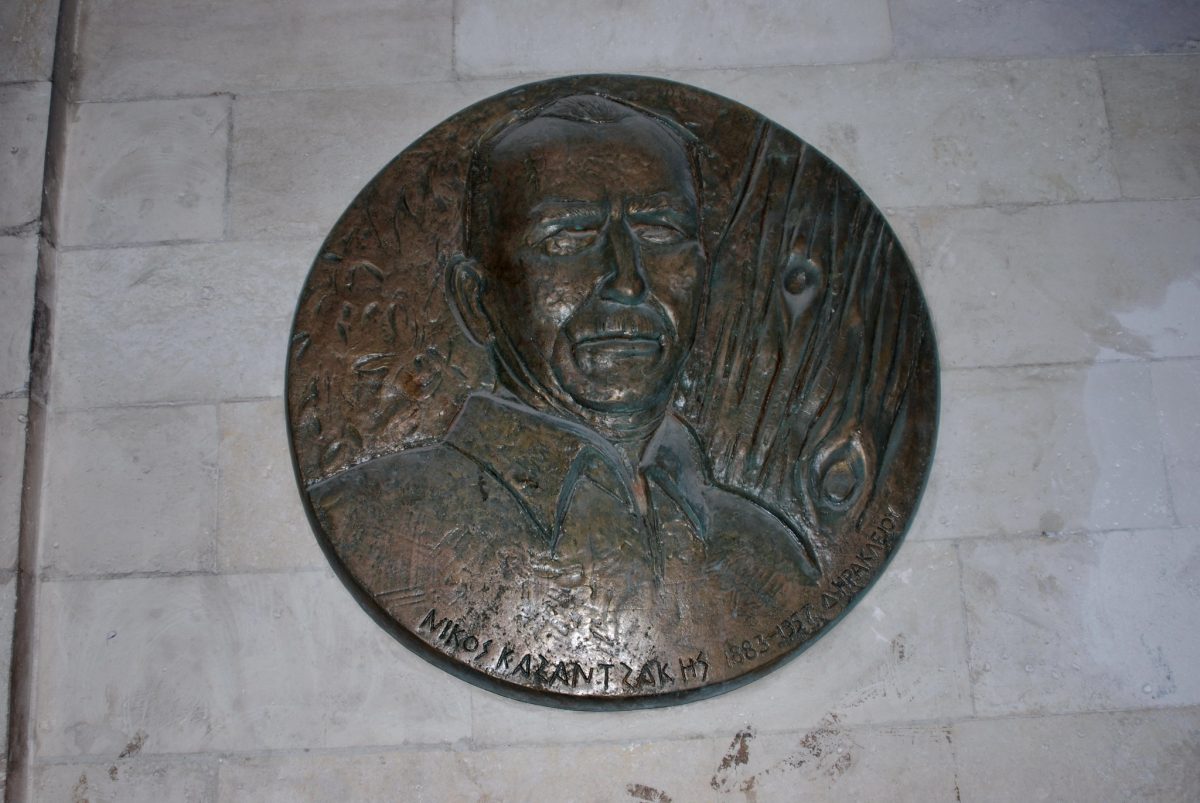
Nikos Kazantzakis, writer, poet, playwright, critic, translator, philosopher, journalist, politician. Nikos Kazantzakis was born on February 18, 1883 in Heraklion, Crete.
He is a writer who, with his work and personality, dominated for about half a century in Greece and abroad. In the first quarter of the 20th century, the personality of N. Kazantzakis began to develop, in the second quarter this personality showed all its dynamism, all its creative breadth, and performed a work that deserves discussion and now, even 64 years after his death, remains alive and current! N. Kazantzakis is the echo of all the great events, not only of the history of Greece but also of world history. He is the eternal traveler who is always looking to find something new. Ηis life was full of adventures, and admiration for many personalities that he met during philosophical and political currents.
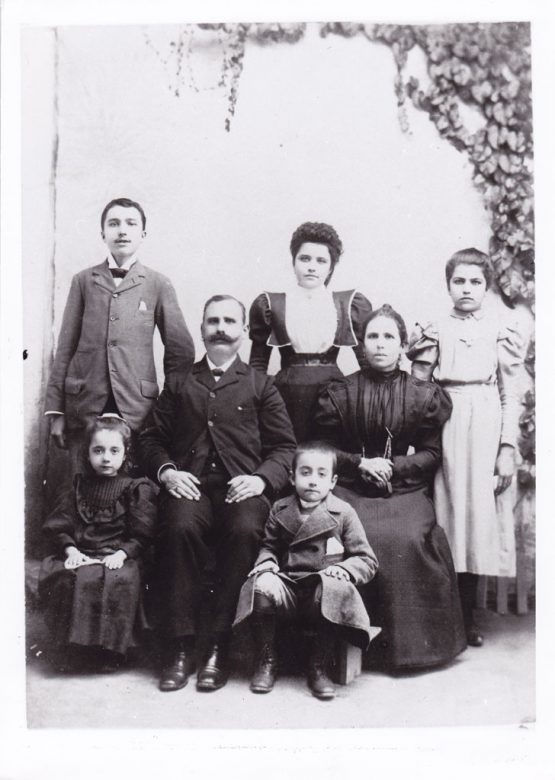
Family Picture of Kazantzaki Family by Kazantzakis Publications
His Childhood Years were marked by Revolutions
The first-born son of the Kazantzakis family, Nikos, was born in Turkish-occupied Crete. His father Michalis was an authoritarian man, unlike his mother Maria, whom Nikos used to liken to a fairy. A sweet and calm fairy, in whose arms little Nikos confused the harsh reality, with childish imagination and innocence. And why was the reality harsh? After all, when you have 2 younger sisters, a lost brother „from the cradle“ and the weight of Turkish rule, then everyday life, debt, honor, and dignity weigh on you.
In 1889, at the age of just 6 years for the young child, a revolution broke out on his island, Crete, against the Turks. Thus, the family is forced to leave Crete for six months and move to Piraeus, to be saved from the Turkish rage that sowed death in its path. After six months, the majority of the refugees who left the island returned and life regained its ’normalcy‘. Nikos started attending primary school. However, in 1897, due to another revolution, after the war with Turkey, the family took the road of refuge again, this time to Naxos. There he learned French and Italian and came into the first contact with Western culture, European education, and literature.
However, Kazantzakis was a prisoner of a dipole that characterized him throughout his life and writing. On the one hand, Crete, that is, the homeland, honor, and debt, while on the other, the West, the dream, the desire, life itself. In 1899 they returned to Heraklion, where the commander of the Great Powers, Prince George, had now taken power and completed his high school studies there. The arrival of Prince George gave a new cosmopolitan breath to the island and this change marked the teenager Nikos.
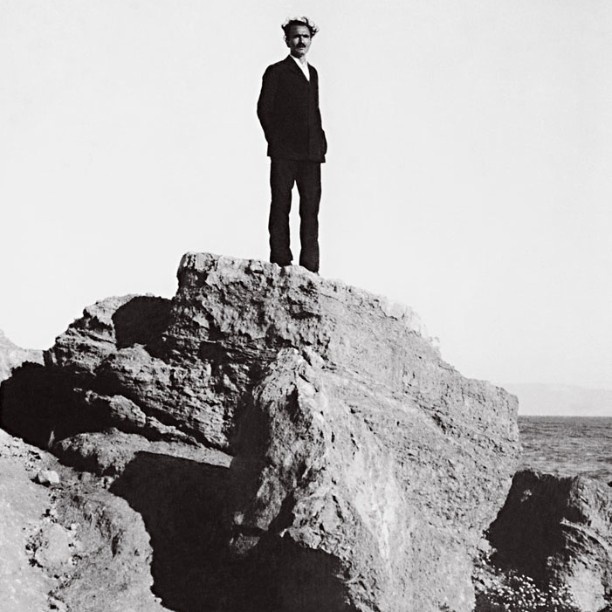
Nikos #Kazantzakis in Aegina island, 1927 Autumn Photo Credit: Oğuzhan Ali
His Adulthood
In 1902 Nikos left the family home and settled to study in Athens. He studied Law in Athens at the University, where he graduated with honors in December 1905, while in 1906 he received his doctorate in Law with honors. Nikos Kazantzakis’s degree also shows the signature of Kostis Palamas, who was a secretary at the University. At the same time with his studies, he engaged in the spiritual world and developments. He also wrote articles in various newspapers and magazines under the pseudonyms Akritas, Karma Nirvami, and Petros Psiloritis. In 1905 he translated texts by Renan, and Dante, where he published them in magazines. In 1906 he first appeared in Greek with his work, the novel Ofis and Krino (under the pseudonym Karma Nirvami), to follow the same year the essay ‚The Disease of the Century‘.
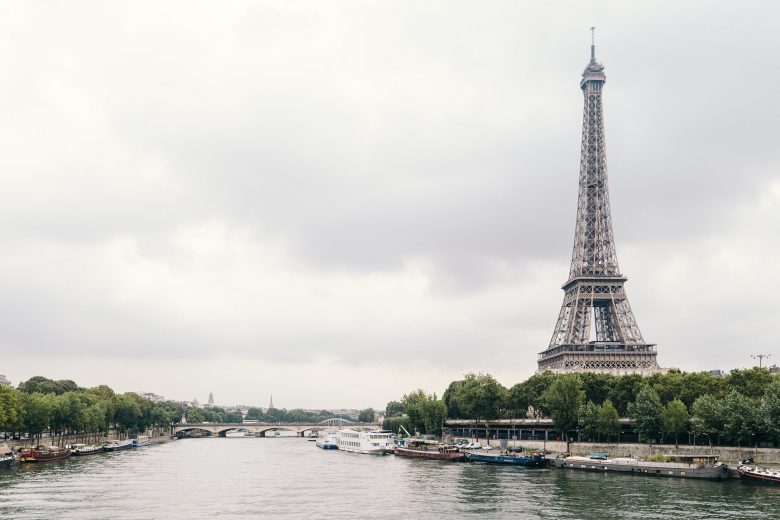
Eiffel Tower in Paris
His Life Abroad and his Involution in Politics
In October 1907 he moved to the French capital to continue his studies in Law. There the influences were great as the life of the city of light was different. In Paris, he is confronted with beauty, poetry, literature, and music. When he finished his studies in Paris he traveled to European cities, and then returned to Heraklion. In 1910 he settled permanently in Athens and 1911 he married Galatea Alexiou, with whom he divorced a short time later and other women took her place. In 1912 he applied to participate voluntarily in the First Balkan War but was eventually appointed to the office of Prime Minister Eleftherios Venizelos.
After the end of the First World War, he visited many countries, such as Germany and Italy. At the same time, he worked as a journalist, where he made several trips through his profession. One of his favorite countries was Russia, in which his political views found fertile ground. By the middle of World War II, he had completed the writing of one of the most important works of ‚Life and Times of Alexis Zorbas‘. After the end of the war, he became intensely active in Greek political life, assuming the presidency of the Socialist Workers‘ Movement. He also served as a minister without portfolio in the government of Themistoklis Sofoulis from November 26, 1945, to January 11, 1946.
A Diagnosis leading him to his Death
Despite being nominated for the Nobel Prize in Literature 14 times, the great writer did not succeed, with some of the political and cultural circles of Greece reducing him, due to his political views. In 1948 he resigned from UNESCO and the position he had taken there to devote himself to literature and writing. At the same time, he traveled abroad again. In 1951 he experienced his first health issues. He moved to Amsterdam in 1952 and later to Paris, where he eventually lost his sight in his right eye. In 1954 he was hospitalized in Freiburg, where he was diagnosed with benign lymphoid leukemia.
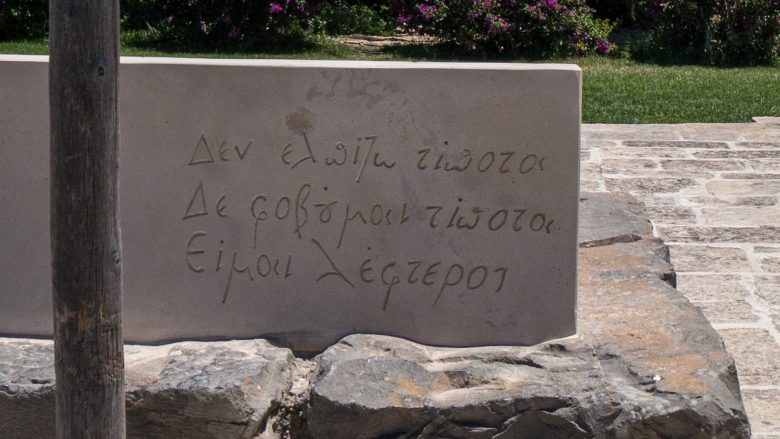
Epitaph on the grave of Kazantzakis in Heraklion. It reads „I hope for nothing. I fear nothing. I am free.“ Photo Credit: fotogake
His Final Years
Kazantzakis made his last trip to Beijing in 1957. To get there, however, he passed through Japan, where got the vaccine against cholera and smallpox. His vaccine caused an infection and they took him to a hospital in Amsterdam. With the situation remaining critical, he was transferred to Freiburg. He remained at the hospital for a long time and overcame the infection. However, he had never been cured of leukemia and left his last breath on October 26, 1957. On November 4 his body arrived in Heraklion, Crete, where he was lied in state. On his tomb, there is a large wooden cross, while on the plaque there is the phrase ‘I do not hope for anything – I am not afraid of anything – I am free’.
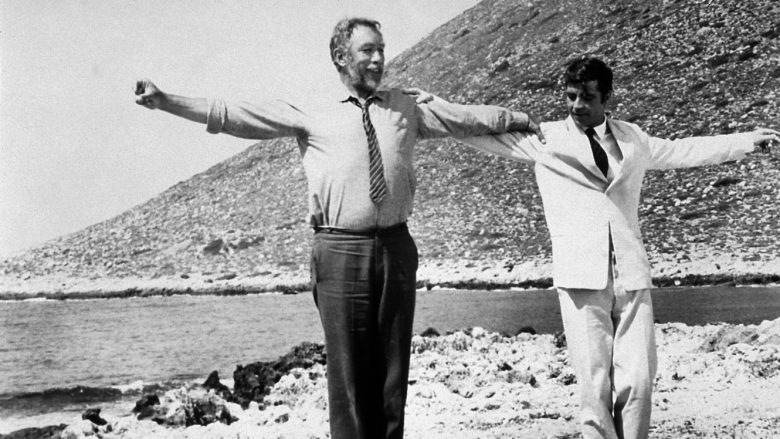
Alex Zorbas Photo Credit: katerina wonder
His Novels are an Inspiration for all
During and after the Occupation, we notice a turn of the author; he begins to write his novels. After traveling around the world, he returns to his native soil, to his roots. The themes of his novels are Greek.
- In 1943 the ‘Life and Times of Alexis Zorbas’ ends (published in 1946). This work reflects the opposition of Buddhism and Bergsonism to the two faces of the author and Zorba, as well as the customs and traditions of the birthplace of N. Kazantzakis.
- In 1948 he wrote ‘Christ Recrucified’, where the author highlights national and ideological contradictions. He mainly tells us his opinion about some clergymen who are unworthy.
- In 1949 the author writes ‘The Fatricides’, where he exposes the political and ideological passions of the Greeks during the civil war. It is a novel full of violence and despair.
- In 1950 he wrote ‘Captain Michalis’. N. Kazantzakis presents his personal experiences of childhood, he tells us all the national and religious drama of the Cretans and especially the heroism of these people, who obey only to freedom.
- In 1951 he wrote ‘The Last Temptation of Christ’, which could possibly not be the biography of Christ, but the confession of a struggling man. For N. Kazantzakis, Christ is not the son of God, but he is the man who fights. The author proposes a Christianity away from the dogmas of the church, ‘The Last Temptation’ is the biblical, Nietzschean expression of the author.
- In 1953 he wrote ‘Poor Man of God’, a work influenced by the life of St. Francis, which could be a continuation of ‘The Last Temptation of Christ’; it is the struggle to overcome oneself.
Feature Photo Credit: George M. Groutas
